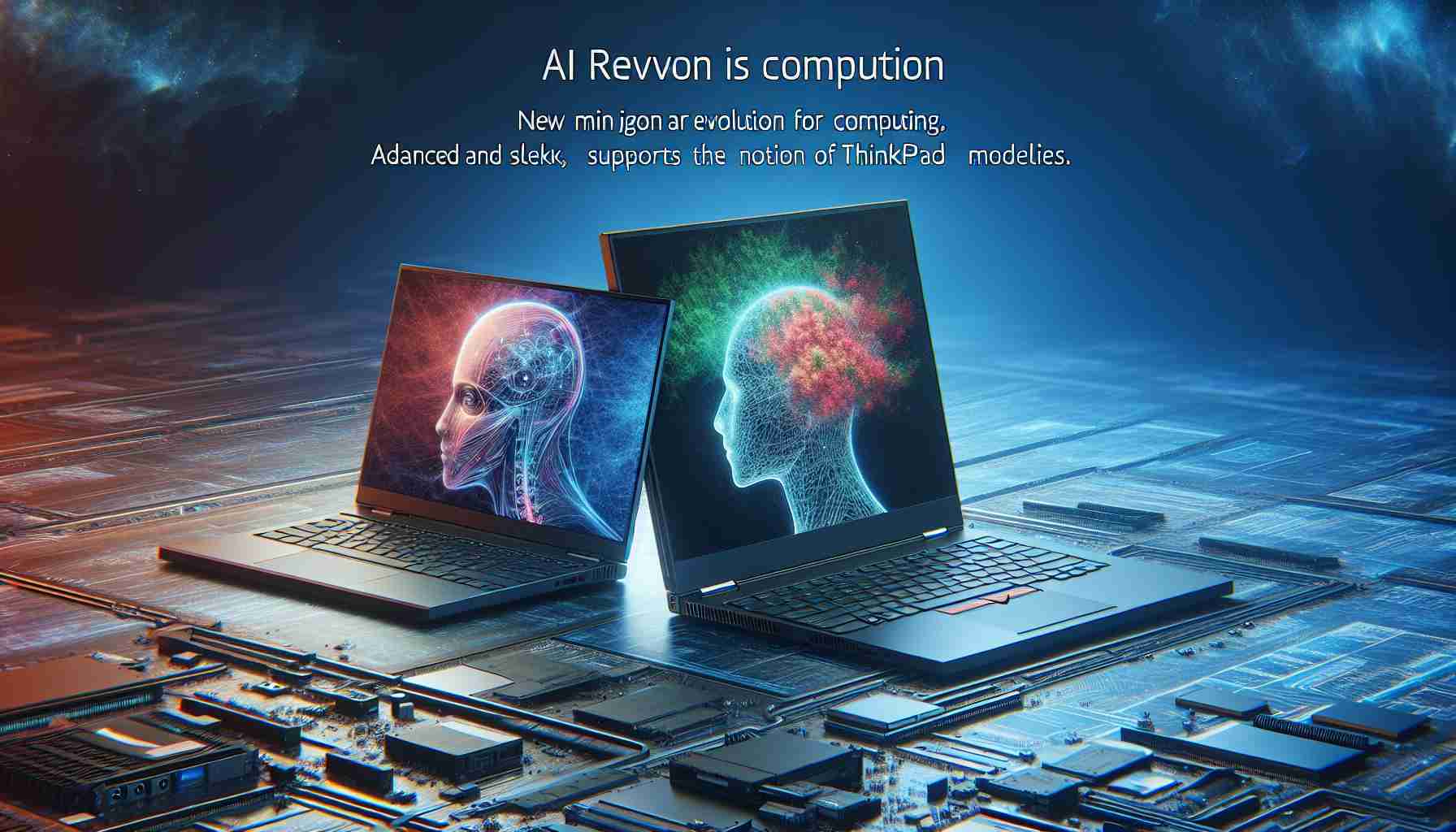Lenovo’s New Era of AI-Powered Laptops
Lenovo steps into a new frontier of artificial intelligence with the announcement of its sophisticated Yoga Slim 7x and the business-centric ThinkPad T14s Gen 6 laptops. These machines are poised to redefine user experience with built-in AI, courtesy of Qualcomm’s latest Snapdragon X processors.
The Yoga Slim 7x stands out with its Snapdragon X Elite processor, designed to enhance AI tasks thanks to its Hexagon NPU. It showcases a stunning 14.5-inch 3K PureSight OLED display that offers a striking image with HDR brightness reaching up to 1000 nits. Enhanced productivity is guaranteed with up to 32GB of RAM, a 1TB SSD, and versatile USB-C ports that support both power delivery and DisplayPort 1.4.
ThinkPad T14s Gen 6: A Powerhouse of Performance
For the power users, the ThinkPad T14s Gen 6 doesn’t disappoint, featuring the same Snapdragon X Elite chip at its core. It’s equipped with an impressive 12-core CPU and offers vast memory and storage options, including up to 64GB of LPDDR5X-8533 memory and a Gen4 SSD reaching 1TB. Various 14-inch displays are available, all designed to deliver a premium visual experience befitting the most demanding professional tasks.
Lenovo’s vision is succinctly articulated by its executives, underlining a transformative leap in the computing world harnessing the power of AI. These laptops are set to provide users with multi-day battery life, indicating a significant milestone in efficiency and performance.
The Lenovo and Microsoft collaboration emphasizes both companies’ dedication to innovation and excellence, setting a new benchmark for AI-assisted computing. With these releases, Lenovo takes a decisive step towards a future where computing is not just smart, but intuitively aligned with user needs for creativity and productivity.
Key Questions and Answers:
– What makes the Lenovo Yoga Slim 7x and ThinkPad T14s Gen 6 stand out in the market?
The Lenovo Yoga Slim 7x and ThinkPad T14s Gen 6 laptops stand out due to their integration of AI capabilities powered by Qualcomm’s latest Snapdragon X processors. The Yoga Slim 7x’s Snapdragon X Elite processor, with its Hexagon Neural Processing Unit (NPU), is built to enhance AI tasks significantly. Both laptops are equipped with impressive hardware specifications, offering high-performance computing with AI enhancements for consumer and business users alike.
– How does the use of AI in these laptops benefit users?
AI enables a more intuitive user experience. It can improve performance management, optimize battery life, offer predictive analytics for maintenance, and provide smarter security features. For example, the AI features in these laptops could facilitate real-time performance adjustment based on the user’s tasks, thus improving response times and efficiency.
– What are the implications of Lenovo and Microsoft’s collaboration on these laptops?
The collaboration between Lenovo and Microsoft is indicative of a strategic partnership aimed at delivering enhanced AI capabilities within computing devices. Combining Lenovo’s hardware expertise with Microsoft’s software intelligence may allow for seamless integration of AI features, ultimately enhancing productivity and creativity for users.
Key Challenges and Controversies:
– Compatibility and Software Optimization: One challenge is ensuring that all software can fully utilize AI capabilities provided by the hardware. Software developers need to optimize their applications to take advantage of AI features. Without this optimization, users may not experience the full benefits of AI-enabled hardware.
– Privacy Concerns: As with any AI-powered device, there are potential privacy concerns. Users may be wary of how their data is being used to train AI models, requiring transparent privacy policies and security measures from Lenovo and other stakeholders involved.
Advantages and Disadvantages:
Advantages:
– Improved Efficiency: AI-enabled processors can offer optimized performance and power efficiency, potentially leading to longer battery life and smoother user experiences.
– Enhanced User Experience: AI can adapt and respond to user behavior, personalizing the computing experience.
– Potentially Lower Maintenance: Predictive analytics powered by AI can anticipate hardware and software issues, leading to proactive maintenance.
Disadvantages:
– Higher Costs: The inclusion of sophisticated AI hardware can drive up the cost of the laptops, making them less affordable for some consumers.
– Complexity: The added complexity of AI features may result in a steeper learning curve for some users.
– Security Concerns: Integrating AI raises questions about user data security and privacy. Ensuring that AI systems are secure against potential vulnerabilities is critical.
For further information, please visit Lenovo’s main website at Lenovo.
